A few years ago I helped out a group who were in Bali looking for something “different”. I bring on board a high caste local friend who is better versed and connected than I’ll ever be, and we explore.
Part of the trip is visiting the less visited. Think waterfalls and eateries you’d never see on a top ten list—at least not one aimed at foreigners. We spend time in a Muslim village out West where we surf and meet the imam. I introduce them to a gifted masseuse whose touch is electric—really. We hike to near impenetrable waterfalls plummeting off Bali’s spine. In the East we stumble upon a cremation taking place on the periphery of a local sports field—we are invited to observe without a second thought.
Exploring the West. Photo: Stuart McDonald.
Everywhere in Bali there is ceremony. Little things with far bigger meanings. Be it the offerings on the footpaths, the touching the heart after shaking hands or the masseuse praying before laying on hands. To the group, all of whom are new to Bali, these are quirky moments that sometimes involve mind bending explanations. Luckily my friend, who I’ll call Ketut* has a skill for unravelling one’s twisted mind. He can dismiss the endless “buts” with carefully thought, calming explanations.
We leave the West and later in the day pull into Sidemen in the East. From there three of us plus a guide begin the climb of Gunung Agung, Bali’s tallest—and holiest—peak. Aiming to summit for dawn, we leave from the carpark at around 1 am. Our headlamps illuminate the exterior wall of Pura Pasar Agung as we start our way up.
Didn’t quite make it. Photo: Stuart McDonald.
Within a couple of hours it is clear one of the guests is struggling. We are yet to reach the tree–line but they are not in a good place. We rest, and gaze at the city lights blinking in the distance below us for a spell, then decide to press on. Not long after, they almost collapse. I remember them sitting on the ground saying they could hear chanting.
We turn back.
Back in Sidemen, defeated, some of the group sleep the entire day. We rise in the late afternoon to drive down to Klungkung for streetside babi guling. There we talk about the next day—a day of magic.
Babi guling inbound. Photo: Stuart McDonald.
Magic is a coarse word to describe some of the beliefs that are interwoven into daily life in Bali. Some days it feels like there’s a ceremony for everything imaginable. When we renovate our house, there is a ceremony before me move in. Years later, when we discover a ghost living in the pool, a ceremony calms the spirit down. A cleansing ceremony in a nearby house following the death of a resident includes the sacrifice of a dog. In my office there’s a small shrine on the wall, it faces Gunung Agung, and every day an offering is placed in it. You’ll find such an alter in almost every house or compound on the island—always angled to Agung. Pay the peak its dues—after all we’re all here at its pleasure.
There’s a lot more to it than colourful offerings sitting on the pavement and at intersections. Balinese Hinduism holds that for every good or positive, there is a counterbalancing evil or negative. With this in mind I want to give the group a small insight into traditional healing. We’ll visit two balians—one a practitioner of the former, then another of the latter. I’ll call them white and black magic, but like magic, these aren’t the most appropriate terms.
Getting down to business. Photo: Stuart McDonald.
We find the white magic healer down a warren of laneways in Klungkung. His workplace is a simple open room with a mattress on the floor, a patient lying upon it face up. In the foyer, on a wooden bench, sit a local family with a baby. Ketut has pre–arranged out visit and the healer nods hello, explaining the foreigners to his patients.
Smiles and nods from the waiting locals as the healer continues his treatment. When finished, he gestures to us, querying who is next. One of the party lays down and he takes to her, prodding and poking. He examines her fingers, lower stomach and sides. He has a few questions, which Ketut translates. A sharper prod with a small wooden tool to one of her fingertips earns an involuntary yelp. With that, the examination is complete, his prognosis is translated, and we are on our way.
Oh hello unclimbable you. Photo: Stuart McDonald.
Later, as we drive back towards Sidemen, the subject comments on a funny sensation to the healer’s touch. Not as profound as that of the masseuse in the West, but nevertheless something. Or perhaps it was the power of suggestion and their mind playing tricks. It was, interesting, if kind of uneventful.
We lose the middle of the day. We admire unclimbed Agung in the distance from the cool waters of the guesthouse pool. We walk the rice terraces, and visit a traditional weaver, a distant relative of Ketut. She explains how long a piece would take to make, the patterns memorised, learned from her mother. Patterns she’s now teaching to her daughter. Like the healer’s abode, her house is simple. Rising damp, flaking paint, a bare concrete floor, the creaking wooden loom aged. A simple life—as simple as her encouraging smile as she moves to let one of our party have a go. A process that looks so simple, yet soon polite laughter engulfs the room as our party learns it ain’t as simple as it looks.
Not at easy as it looks. Photo: Stuart McDonald.
Night is falling when we hustle to go visit the black magic practitioner. Up into the hills behind Sidemen we drive. Darkness falls. Then rain—solid rain. We weave up an unlit narrow road, our headlights barely illuminating the path ahead. Then a tall wall to our left and we turn in to a closed gate. There we sit, the rain pelting on the roof. It feels perfect.
Someone within slides open the gate and we drive into a barely lit, open air compound. Near the centre a family temple of sorts sits, again dimly lit. Ketut drifts off with the gate opener for a spell, then ushers us into the temple.
Now what is a good tourist price? Klungkung market shopping. Photo: Stuart McDonald.
Within, sheltered from the rain, we down our umbrellas and take in the surrounds. The centrepiece is a raised dais and upon it a man sits. The light is poor, but I can tell for a Balinese man he is heavyset—not overweight but it would be fair to say big boned. Old but not ancient, in his fifties I guess.
We sit below him, me, thanks to years in Thailand, instinctively with my feet behind me. There is an exchange in Balinese between Ketut and the priest. I assume some pleasantries and I guess a request that we can film, as Ketut turns and says they can turn the cameras on.
The priest asks, with Ketut translating, what was it we want to know. Nobody is sure, we are all a bit taken aback by the scene. Someone asks how did he become a balian?
Offerings for everything. Photo: Sally Arnold.
His power (again, like magic, a poor word to use) came to him years ago—“a gift from the spirits,” he says. It came to him before he was married and, through the years, his power has strengthened. He knows the way of the light and the dark, he says, and he can help those in need—regardless of if their needs are good or evil.
We ask are people scared of his power, and of him. A long back and forth between Ketut and the priest follows—I guess translating our clumsiness. The English version is short and to the point. I’m paraphrasing here!
“People come to ask me for help as a healer, and for that power they respect me. People know though, some come to me for bad things, and my power with this is proven. For that, they fear me. This fear, it makes my power stronger. I am the head of an important temple.”
Taking a moment. Photo: Stuart McDonald.
I ask who comes to see him? When they ask for bad things, what do they ask for? Again a convoluted discussion in Balinese with a simpler explanation delivered in English.
“All sorts. Trouble in life, trouble in love, trouble with money. To talk to or hear from the dead. All sorts come. Balinese, people from outside [meaning non–Balinese Indonesians], sometimes Bule [foreigners].”
Learning that foreigners come to see him, I ask what sort of foreigners, and for what sort of problems? To this a long winded explanation about a teacher from a Balinese international school follows. They are seeking revenge on an errant lover and came to have him curse them. When I ask what kind of advice he deals out to errant lovers, Ketut says this is not an appropriate question and doesn’t translate it. Watching the priest though, I’m sure he understands what I ask.
Now that’s a kris or two. Islamic Arts Museum, Kuala Lumpur. Photo: Stuart McDonald.
We’re all seated, prostrated below him, with Ketut between us and the priest. The priest reaches behind and pulls out a crudely fashioned knife, almost a kris, but not quite there. Saying something in Balinese, he offers it to Ketut—not aggressively, but Ketut jumps back. Not only does he not want to touch it, he doesn’t want to accept anything handed to him by the priest. The priest isn’t bothered and places it beside him.
The crew are dumbstruck and there’s a long pause. I’m wracking my brain for something vaguely sensible to ask. When our son was born, we lived in Sanur, and after his birth, we had a ceremony and buried the placenta in the garden. This is a common practise in Bali, and while neither Sam nor myself are religious, well, best to cover all the bases. So I ask:
“When our son was born in Bali, we buried the placenta under a plant in our garden in Sanur. We later moved to Umalas and dug both up and moved them to the garden at our new house. Was this the right thing to do?”
Not everyone was bothered by the ghost in the pool. Photo: Stuart McDonald.
Ketut relays my question. The priest looks baffled, then asks if I’m Balinese–Hindu, to which I shake my head. He nods, and says, while not necessary, it would not have done any harm.
I ask about the ghost in our pool, and this interests him more. He asks if we had a ceremony. I said yes, a local mangku performed it, and the ghost seemed to have chilled out. He nods, then adds if the ghost causes more problems, we should call him.
Call Ghostbusters.
Later the gears change. He lifts the knife he’d tried to hand to Ketut earlier. Then, opening his mouth he extends his tongue and slices it clear across. The blood flows and he spits it on the floor. Then, he seems to stab himself in the stomach with the same blade. He’s speaking Balinese during this and Ketut is struggling to keep up. He’s flustered, and says the priest is demonstrating his power to us.
Some things just go together. Photo: Stuart McDonald.
It is hard to make sense of where the real deal morphs into theatre for foreigners. It brings to mind Sam seeing people in trances eating light bulbs in East Java. Is this real or spectacle?
By this stage Ketut is uncomfortable and wants to leave. At the first opportune moment, we thank him for his time and go to stand and step back. I’m not a religious person, but the whole scene feels like it is going sideways badly.
He isn’t done though. He retrieves a bone—human, from a nearby graveyard, he tells us. We’re welcome to return after midnight and he’ll take us down to dig up a few more. We politely decline.
We make our farewells, leave a donation for his time and drive back in silence.
Getting all pensive at Candi Dasa. Photo: Start McDonald.
Back at the guesthouse in Sidemen, Ketut excuses himself immediately. He needs to shower, to cleanse himself of what he’s just experienced. We don’t see him again until the next morning. The rest of us sit by the pool and listen to the insects. There is much to digest but we all seem lost for words, and we say almost nothing to be honest. Eventually we drift off to bed and the next day we’re snorkelling off Candi Dasa.
I heard recently from Ketut that the priest died in late 2019. Due to complications from surgery—the eighth attempt at fixing a physical problem he suffered from.
I wonder who his spirit passed his power on to.
* Ketut is a pseudonym.





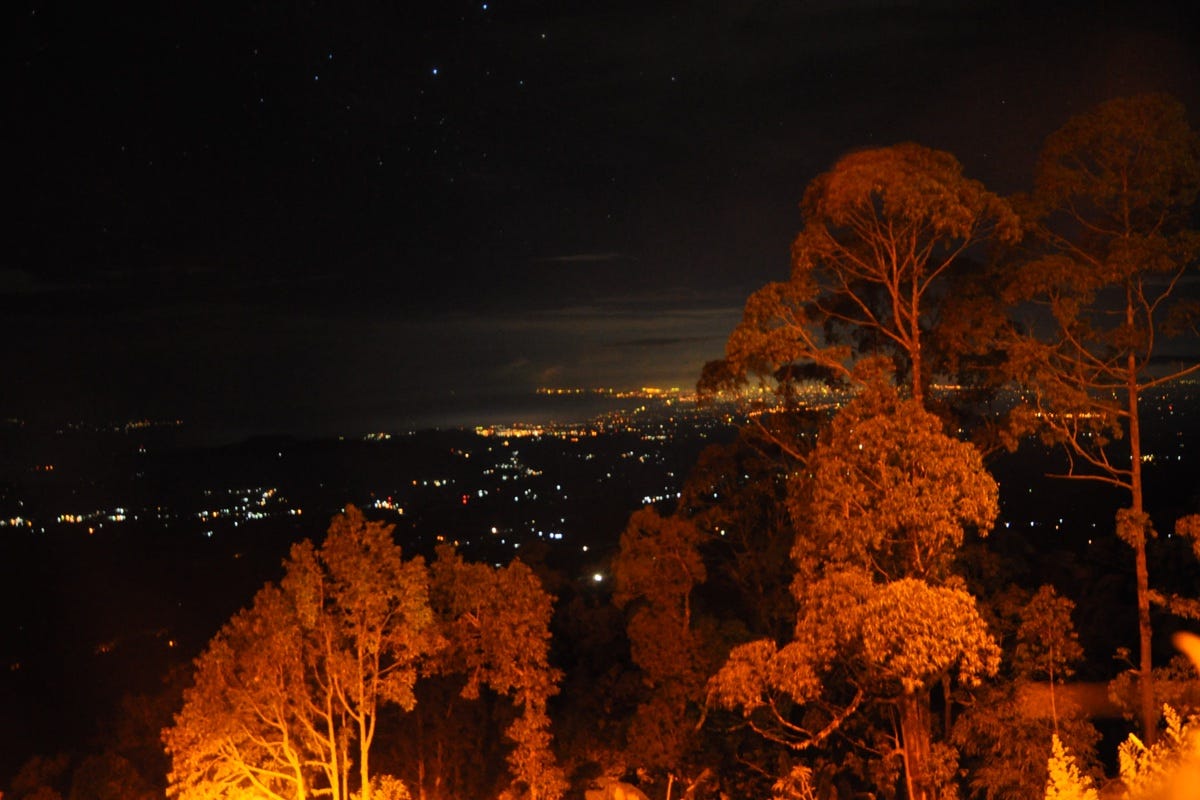






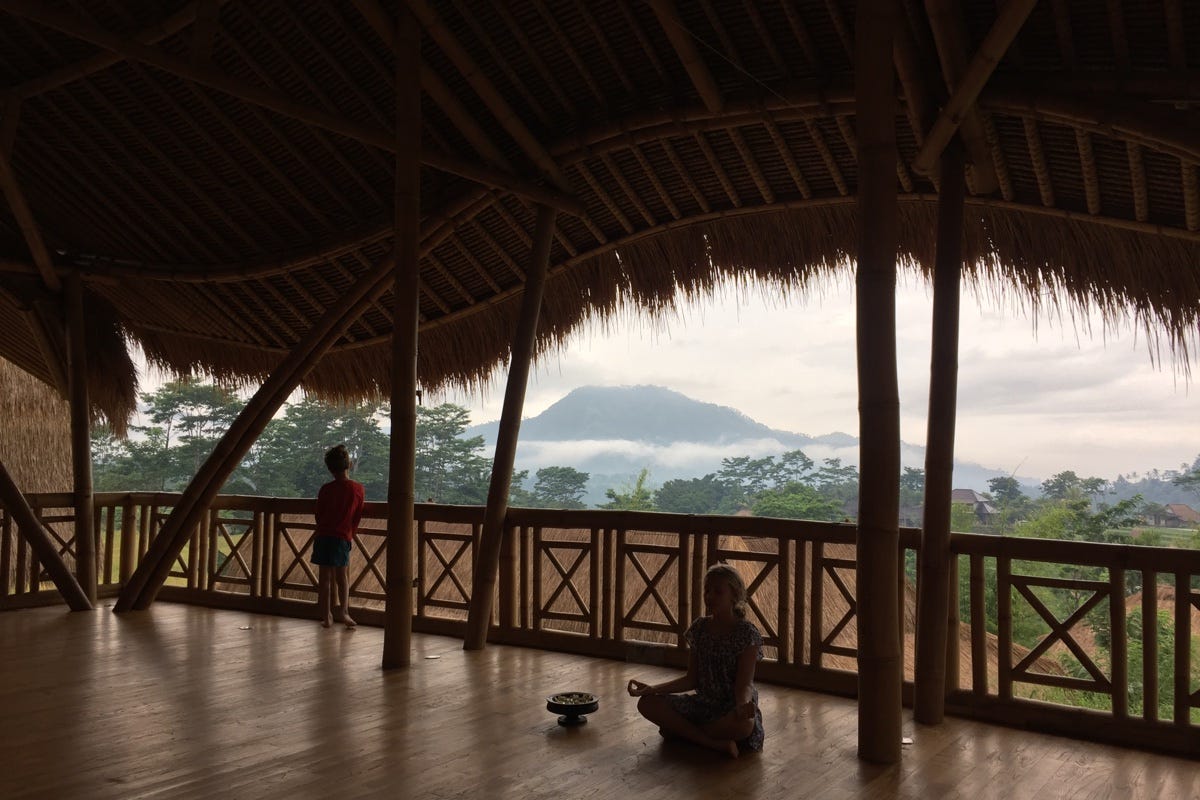

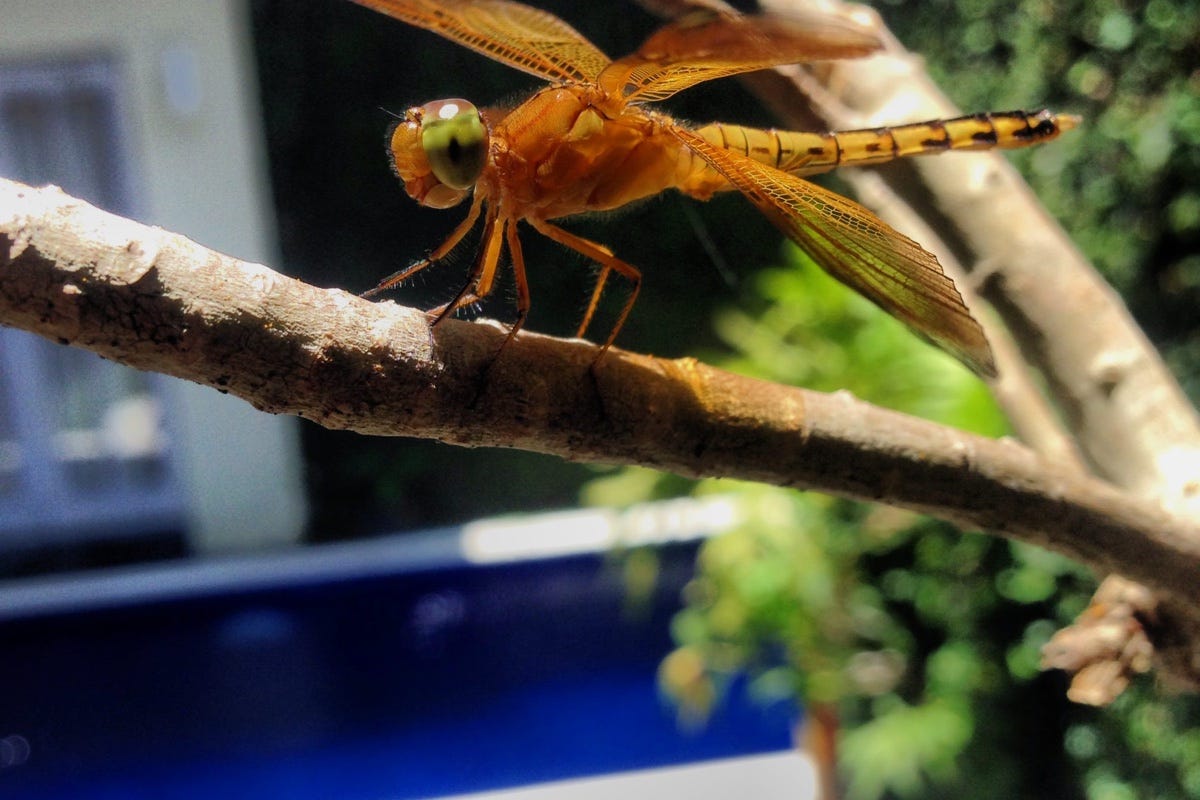
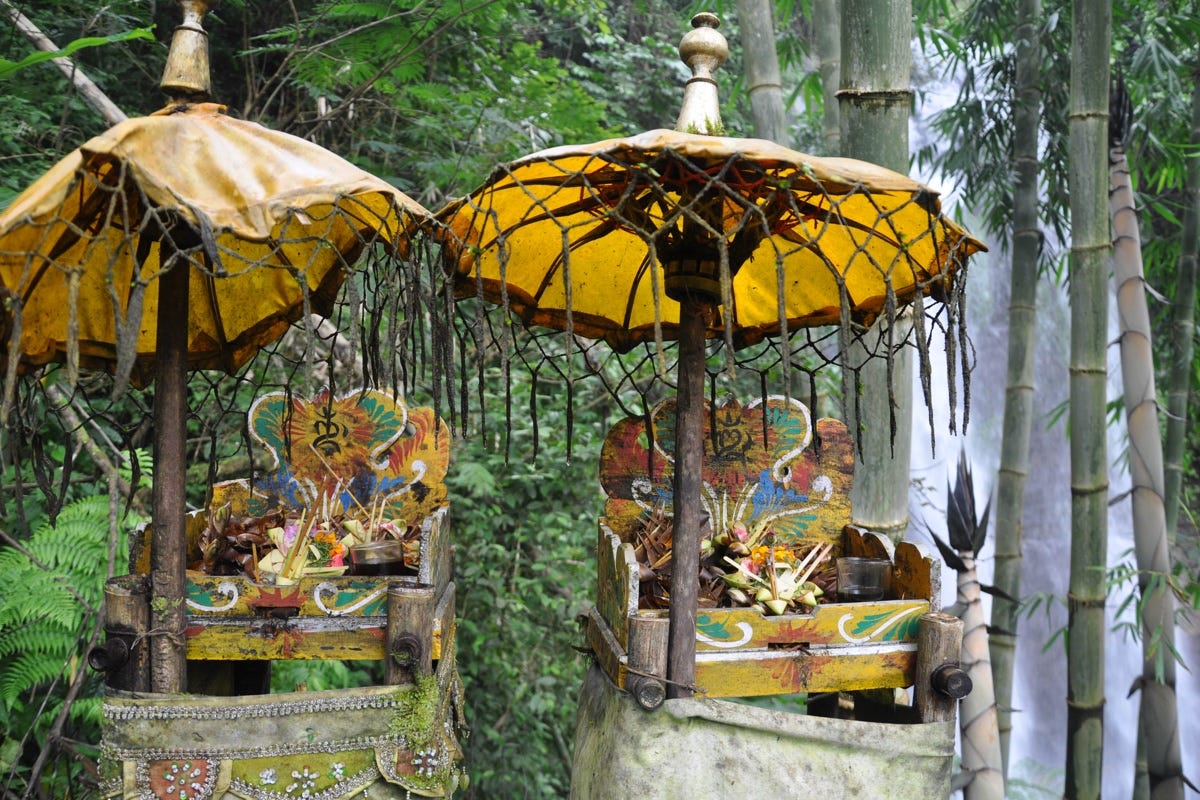


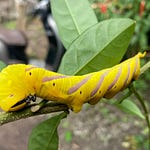
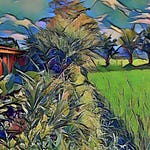

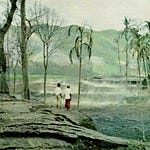

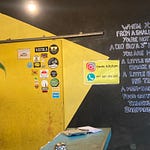
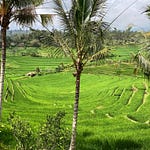

Share this post